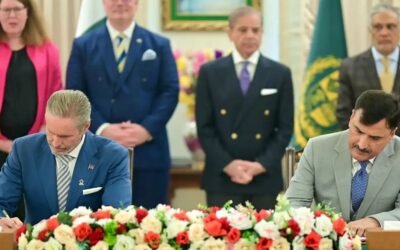The tension between India and Pakistan has been carried out in the diplomatic arena, especially in the United Nations system. Being a permanent member of the UN Security Council (UNSC), China has often served as a balance to India’s attempt at isolating Pakistan diplomatically, at least after cross-border militant attacks.
This trend was again witnessed in the incident of Pahalgam, where India alleged the involvement of Pakistan in the attack, and they demanded a condemnation of the same internationally. In reaction, China demanded restraint and objective research with a focus on dialogue rather than intensification. This incident is part of a pattern in local politics: Beijing provides just the kind of muted but steady (strategic, economic, and geopolitical) support to Islamabad at multilateral meetings.
Historical context of the China-Pakistan alignment at the UN
China has been in full support of Pakistan in the UN many times against Indian diplomatic efforts. One such note was the move made by Beijing in the month of August 2019, where China sought to bring up the Kashmir issue in the UN Security Council after India revoked Article 370.
India has been stonewalled by China in its quest to have militants based in Pakistan banned in the UN. Significantly, it enacted technical holds on proposals to list the Jaish-e-Mohammed leader Masood Azhar under the 1267 Sanctions Committee in 2009, 2016, and 2017, only permitting his listing after continuous external pressure. Beijing defends Pakistan at the UN to diplomatically defend a strategic cooperation that is based on common regional interests.
Strategic Interests of China
The supportive attitude towards Pakistan in the UN is not a purely diplomatic act of China but is based on a certain calculation of the strategic, economic, and even geopolitical nature. China-Pakistan Economic Corridor (CPEC) is the largest such initiative, with a total value of $62 billion, which enables China to have direct access to the Arabian Sea and bolsters its energy security.
Another important part played by Pakistan is the Chinese move toward countering India due to its increasing closeness to the United States and joining regional blocs such as the Quad. By supporting Pakistan, China restricts the growing influence of India and its diplomatic action and power in South Asia in particular. In addition, Beijing also likes a stable region that does not favor an Indian hegemony. For China to maintain its strategic superiority without having to confront India directly, supporting Pakistan, particularly on controversial matters such as Kashmir or designations to counter terrorism, is an advantage.
Pahalgam Attack and China`s Role
In April 2025, a fatal attack occurred in the Pahalgam region of Indian-administered Kashmir. Indian representatives immediately blamed the attack on a militant organization, Lashkar-e-Taiba, and mounted a diplomatic effort to red-flag Pakistan as a state sponsor of terrorism. India took the matter to the UN and approached members of both the UNSC and other world leaders to condemn the act in unison and act in ways that have punitive consequences. The Indian Parliament made statements, and the foreign missions were used to put pressure on Islamabad.
Nevertheless, the Indian effort got stalled at the UN, especially by China, which demanded restraint and cautioned against politicizing the discussion of counterterrorism.
China responded with a rather cautious yet tactical diplomatic language. As much as it shared its disappointment at human life losses, the Chinese Ministry of Foreign Affairs did not support India claiming that those involved in the attack were Pakistan-based groups. It focused, instead, on the value of control and transparent investigations into the matter. China explained that unilateral accusations without confirming evidence can further escalate tensions and damage peace in the region.
When India began Operation Sindoor in early May 2025, during which it targeted suspected militant cells, China’s reaction became more specific. Beijing gave a warning against anyone changing the current situation or starting fights on their own. While not directly aimed, these words were widely understood as a criticism of India’s recent actions. At the same time, Chinese state media and official statements replicated the Pakistani interpretation that it was a victim of an unsubstantiated accusation, with no evidence of its guilt.
China also continued to claim the position of Pakistan as its diplomatic shield at the United Nations. According to journalists, China blocked an Indian-sponsored joint statement at UNSC consultations (held informally) in mid-May 2025. Demanding that the Council should concentrate on de-escalation and dialogue, as the investigation into the Indian accusations was still pending, instead of imposing condemnatory measures.
This stance hindered the possibility of formal sanctions against Pakistan. The uneasiness over China and its repeated calls for dialogue, regional cooperation, and respect of sovereignty was closely relayed on the loudspeakers of Islamabad. Stirring up principles of fairness and stability and hindering any penal treatment, Beijing once again showed itself as the major diplomatic supporter of Pakistan in international arenas.
Implications of China`s Support
New Delhi tried to get support from its important allies and the United Nations. However, China, being a permanent member of the UN Security Council, could block any attempt to officially blame or take action against them. With the insistence of restraint, objective investigations, and de-politicalization of counterterrorism, Beijing halted India, leaving Pakistan without multilateral pressure. To Pakistan, Chinese support strengthens its geopolitical positioning and gives it much-needed diplomatic protection when it is under the spotlight.
China’s role not only restricts Indian actions in the region, but it also serves as a possible warning message to other parties that the Chinese are ready to test new alliances, especially ones that are openly allied with the U.S. or the Quad. As China and Pakistan draw closer in economic dimension through CPEC and diplomatically through communicated messages, Beijing’s equilibrium role is progressively coming to define the outlines of South Asia conflict diplomacy.




























